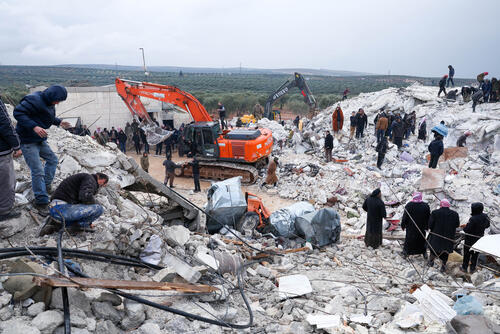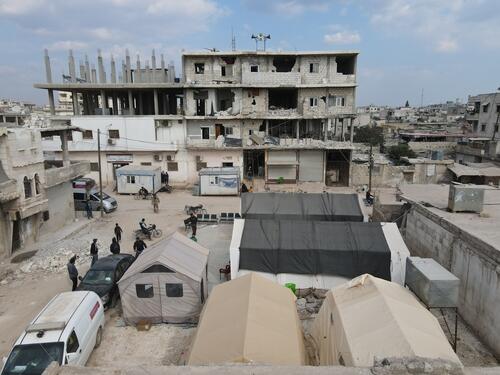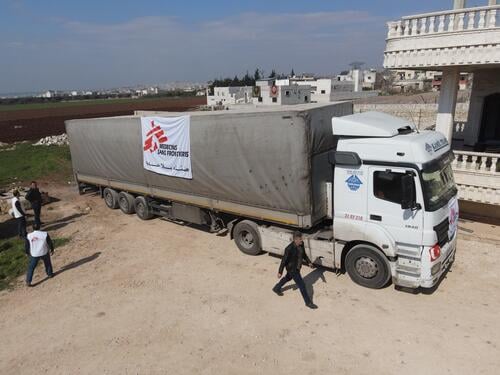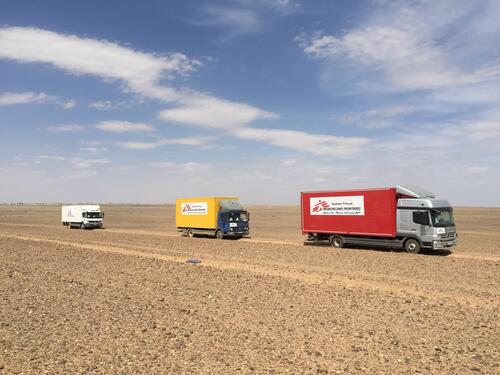The earthquakes that hit south Türkiye and northwest Syria have caused untold devastation. At the time of the disaster, Médecins Sans Frontières (MSF) was supporting people in northwest Syria, who are still suffering from more than 12 years of war. Ahmed Rahmo, MSF project coordinator for the Idlib region, provides us with updates on the situation on the ground.
“Four days after the earthquakes, our teams have continued our emergency response in northwest Syria. We have received very little international support so far. Our work is essential, but it is also a drop in the ocean: the needs are immense in the region. We are addressing the basics by providing food, water and medical care.
Given the lack of funds for humanitarian aid and difficulties to access this landlocked area, most Syrian hospitals were already facing many difficulties and shortages even before this catastrophe. Moving supplies and medicines from Türkiye into Syria was already a challenge, as Bab al-Hawa was the only crossing point for humanitarian convoys to northwest Syria and was subject to political tensions before the disaster.
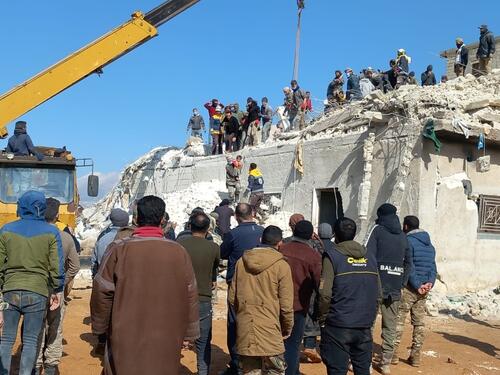
After the earthquakes, this crossing point was closed for three days and only reopened yesterday (9 February), with very little traffic so far. Humanitarian organisations working inside northwest Syria have dipped into their emergency stocks that were on site. There is no time to waste in reaching the people of this region – delivery of supplies is crucial. Two million people are living in displacement camps, often in tents exposed to the wind.
Just a week before the earthquakes, a snowstorm had hit the area. Living conditions have significantly deteriorated. We donated heating equipment, blankets and mattresses, which are essential in these weather conditions, as temperatures are below freezing at night.
Today, an increasing number of people have been forced to join these camps, while reception centres have been opened to accommodate more displaced people. There are 15 reception centres in the Idlib region for now, and we have launched mobile clinics to offer medical consultations in five of these. We will expand this activity in the coming days.
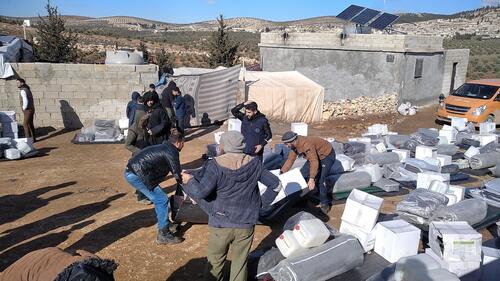
Our teams have also responded by donating medical items to more than 10 hospitals. We are responding to a variety of needs, which relate to traumatology, obstetrical care or dialysis.
We have also sent some of our medical staff from our hospital in Atmeh, which specialises in the care of burn victims, to support other hospitals, whose staff have been overwhelmed by the number of injured. We have also mobilised our ambulances to be used for transfers between hospitals.
Many parents were burying their children. Others were under the rubble. No family was spared. Every family lost one or several loved ones. It’s taking time to get people out.Samar, MSF health promotion supervisor
Every day, our teams share tragic stories with us. Some of the survivors have lost everything: their homes, their clothes, access to food, sometimes members of their family, their money, everything… and now they live in tents. They need clothes and hygiene products, they need water and food, they need everything.
Humanitarian organisations must also protect these people against cholera, which has recently spread in the region since last September and which proliferates in such precarious conditions, where there is a lack of access to clean water. Our teams have tackled this disease in the past months, but we can’t cover all the needs, especially as the general situation is worsening. For many inhabitants of this region, living conditions have become even more dire.”



